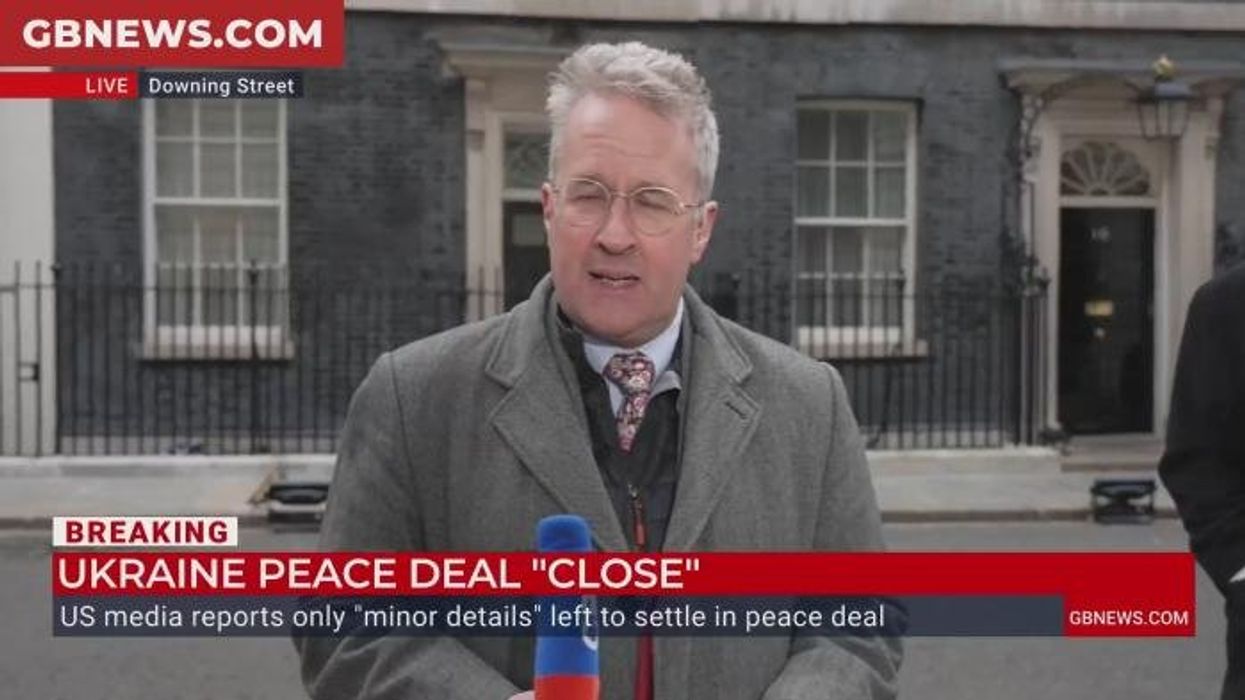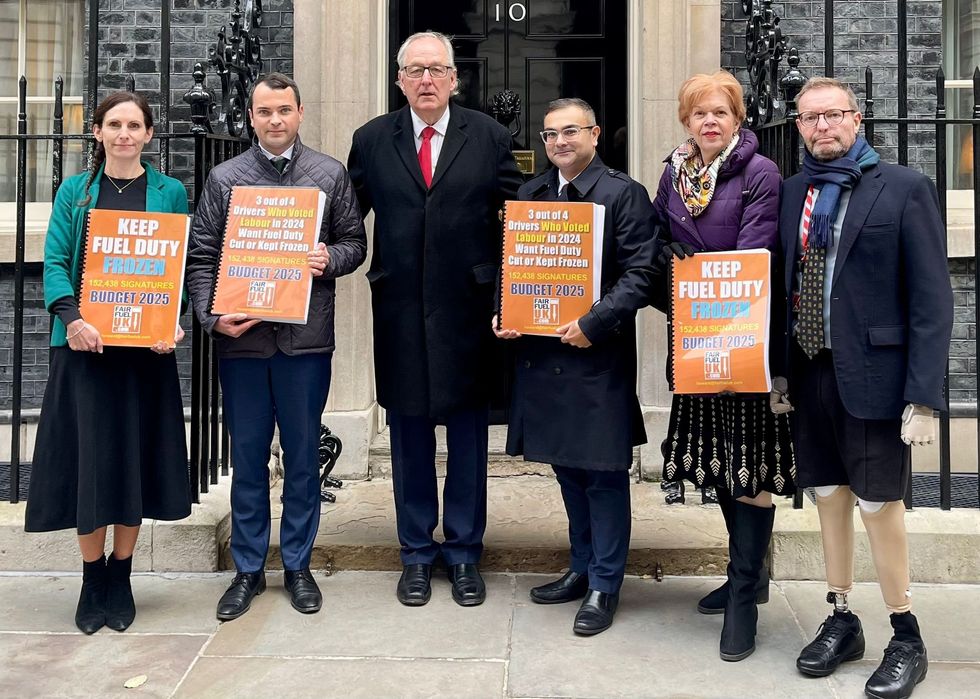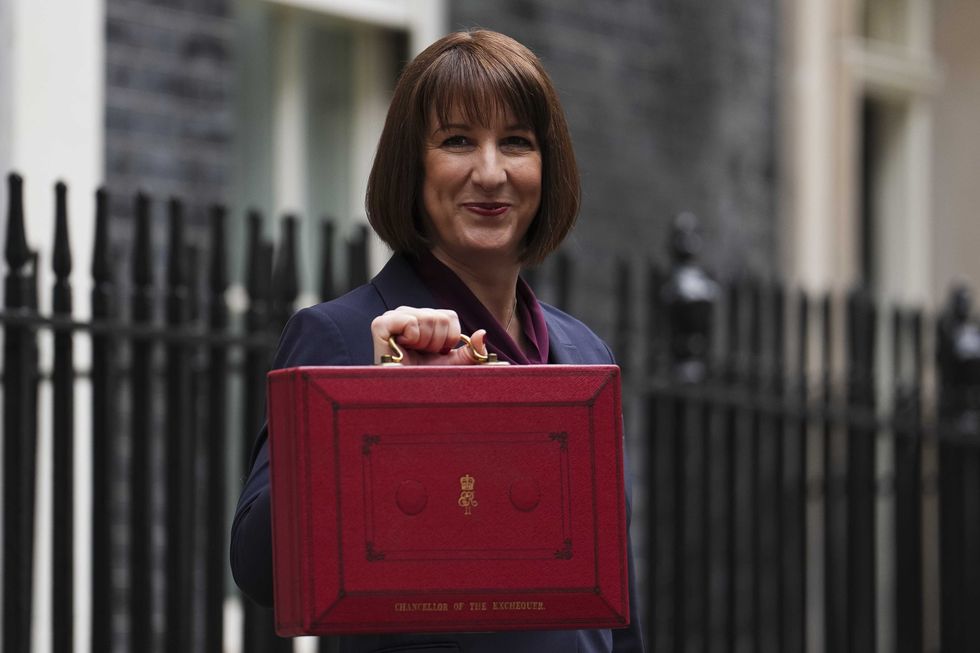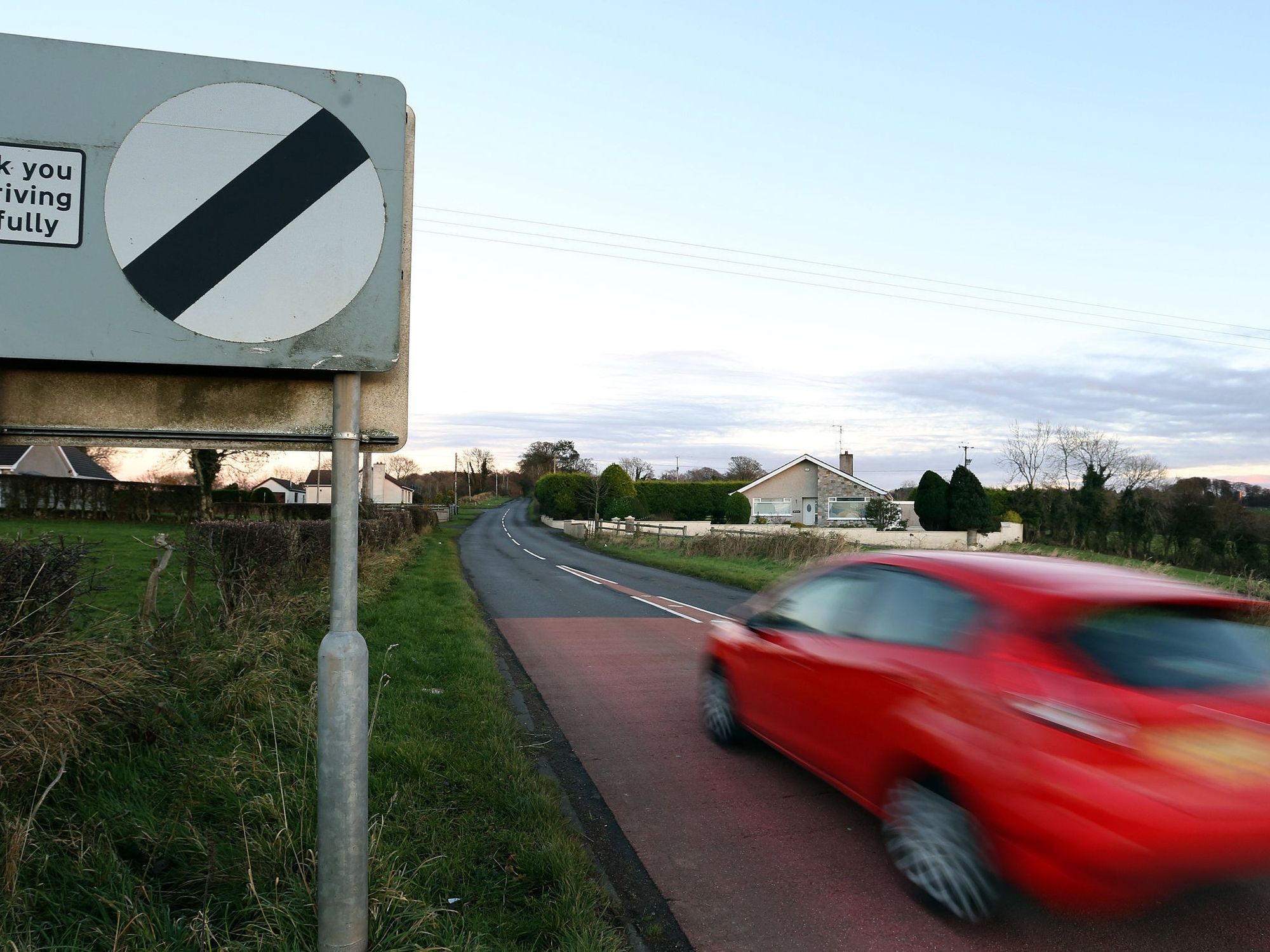Rachel Reeves 'highly likely' to axe fuel duty freeze in Budget as petrol and diesel drivers face misery

WATCH: Founder of FairFuel UK, Howard Cox, hits out at Labour's 'war on motorists' ahead of the Budget
|GB NEWS

Lord Mackinlay warned that Chancellor Rachel Reeves could make fuel duty changes in the Budget tomorrow
Don't Miss
Most Read
Labour is being urged to avoid making any changes to the rate of fuel duty in tomorrow's Budget, or millions of drivers could be hammered at the pumps, experts have warned.
A group of MPs and campaigners have delivered a landmark petition to 10 and 11 Downing Street today, calling on the Government to cut or keep fuel duty frozen.
A petition from FairFuelUK attracted more than 152,000 signatures from British drivers calling on the Government to remain on the side of motorists in the Budget.
There have been suggestions that the Government could decide to hike the rate of fuel duty in the Budget to raise money as it battles against a huge funding black hole.
Fuel duty has remained frozen since 2011, while the previous Conservative Government introduced a five pence per litre cut in 2022 following the Russian invasion of Ukraine.
The 5p cut has also remained frozen, with Chancellor Rachel Reeves extending the freeze last year until March 22, 2026, giving reassurance to drivers.
However, campaigners are calling on the Government to go further and protect motorists at the pumps with a continued freeze, or even a cut, when the Chancellor unveils the Government's spending plans.
A letter sent to Rachel Reeves praised Labour for consistently supporting a fuel duty cut when in opposition, adding that it should continue this level of support after November 26.

FairFuelUK founder Howard Cox and several MPs delivered a fuel duty petition to the Prime Minister and Chancellor earlier today
|FAIRFUELUK
Speaking to GB News earlier today, FairFuelUK founder Howard Cox said he was delighted with 152,000 signatures as support grows for these measures to remain the same.
This was echoed by Broxbourne MP Lewis Cocking, who warned that the Budget could be "disastrous" for working people, describing fuel duty as "one of the worst taxes we've got in this country".
Former Conservative MP for South Thanet, Lord Mackinlay, said: "They're just looking to spend. They want to tax anything that moves, and literally, the thing that moves a lot in this country are vehicles.
"The five pence fuel duty cut that we had during Covid, I have to say, is probably very highly likely to be lost this time. But it's the most regressive of taxes, going to hit the poorest hardest."
LATEST DEVELOPMENTS
- Polestar unveils revolutionary EV charger breakthrough that can save drivers £1,000 a year - 'Game changer!'
- Local authorities tipped to tackle e-bike misuse as 'unsafe' vehicles pose major safety risks to Britons
- Elon Musk rages at Europe 'strangling itself' as Tesla's self-driving tech delayed by 'insane' rules
The group included FairFuelUK founder Howard Cox and Conservative MPs Lewis Cocking (Broxbourne) and Wendy Morton (Aldridge-Brownhills), as well as Lord Mackinlay of Richborough.
The letter to Chancellor Rachel Reeves also had the backing of prominent MPs, such as Sir Desmond Swayne, Sir Gavin Williamson, Bob Blackman CBE and Rupert Lowe.
Data from FairFuelUK, which is included in the letter to the Chancellor, estimated that any cut to the rate of fuel duty could add £160 to the annual price of filling up.
Professional drivers would see an even larger impact, with the average commercial van owner paying £500 extra, while hauliers would pay an eye-watering £5,000 extra.
 Chancellor Rachel Reeves will unveil the Autumn Budget on November 26 | PA
Chancellor Rachel Reeves will unveil the Autumn Budget on November 26 | PAMr Cox warned that this would lead to a drop in economic activity, lower consumer spending and reduced business investment.
At present, drivers are paying an average of 136.82p per litre, while diesel owners are forced to fork out 145.86p.
According to RAC Fuel Watch, there are no significant changes forecast for the price of fuel, although this could change following the Budget.
Speaking to GB News, a spokesperson for HM Treasury said the Chancellor would not comment on tax changes ahead of the next fiscal event on Wednesday, November 26.










